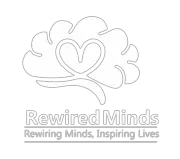
Mental health is just as important as physical health, but it’s often overlooked. Just like you need to take care of your body by eating healthy foods and exercising regularly, you also need to take care of your mind by managing stress, getting enough sleep, and practicing self-care.
One way to take care of your mental health is to do a daily check-in. A daily check-in is a brief time each day to reflect on your mood, thoughts, and feelings. It’s a way to identify any potential problems early on and take steps to address them.
Why are mental health daily check-ins important?
- It can help you identify early signs of mental health problems. If you’re feeling stressed, anxious, or depressed, a daily check-in can help you recognize the signs and symptoms early on. This can help you take steps to address the problem before it gets worse.
- It can help you improve your mood. Taking the time to reflect on your thoughts and feelings can help you understand them better. This can help you to manage your emotions more effectively and improve your overall mood.
- It can help you reduce stress. Stress is a major trigger for many mental health problems. By doing a daily check-in, you can identify the sources of stress in your life and develop strategies for coping with them.
- It can help you increase your self-awareness. A daily check-in can help you to become more aware of your thoughts, feelings, and behaviors. This can help you to make better choices for yourself and improve your overall well-being.
How to do a mental health daily check-in
There is no right or wrong way to do a daily mental health check-in. The most important thing is to find a method that works for you and to be consistent with it. Here is a simple guide to get you started:
- Find a quiet place where you won’t be interrupted.
- Take a few deep breaths and relax.
- Ask yourself the following questions:
- How am I feeling today?
- What are my thoughts and emotions?
- What are my priorities for today?
- What challenges am I facing?
- What are my coping strategies?
- Write down your answers to the questions. This can help you to process your thoughts and feelings and to identify any areas where you need support.
- Develop a plan for addressing any challenges you’re facing. This may involve setting small goals, developing new coping mechanisms, or seeking professional help.
- End your check-in by taking a few more deep breaths and expressing gratitude for something in your life.
Tips for doing a mental health daily check-in
Here are a few tips for doing a mental health daily check-in:
- Be honest with yourself. It’s important to be honest with yourself about how you’re feeling. This will help you to identify any potential problems early on and take steps to address them.
- Be specific. When you’re writing down your thoughts and feelings, try to be as specific as possible. This will help you to better understand what you’re going through and to develop more effective coping strategies.
- Be consistent. The most important thing is to be consistent with your daily check-ins. Aim to do a check-in at the same time each day, even if it’s just for a few minutes.
- Don’t be afraid to seek help. If you’re struggling to manage your mental health on your own, don’t be afraid to seek professional help. A therapist can teach you coping skills and help you to develop a treatment plan.
Mental health resources for young adults
If you’re a young adult struggling with your mental health, there are many resources available to help you. Here are a few:
- The National Suicide Prevention Lifeline: 1-800-273-8255
- The Crisis Text Line: Text HOME to 741741
- The Trevor Project: 1-866-488-7386
- MentalHealth.gov: MentalHealth.gov website: https://www.mentalhealth.gov/
- The National Alliance on Mental Illness (NAMI): NAMI website: https://www.nami.org/
- The Jed Foundation: The Jed Foundation website: https://www.jedfoundation.org/
In Conclusion
Remember, you’re not alone. There are many people who care about you and want to help. If you’re struggling, please reach out for help.
